By Terry McNamee © 2013
Puppies and even some adult dogs just love to treat the flower bed as an all-you-can-eat brunch. However, many common plants that people grow in their gardens or yards can cause serious illness or even death if swallowed. People living in warm climates have more types of plants to worry about, because of the greater variety of species. In Canada and other colder areas, there are fewer garden plants to choose from. But no matter where you live, there are still a great many dangers awaiting the average dog in almost any back yard. Not all toxic plants cause the same reaction. Depending on the chemical in the plant, ingesting it can cause heart or respiratory problems, stomach upset, excessive salivation, seizures, shock or any combination of these. The most toxic can kill a dog very quickly. Here are some common plants you should remove from your yard if your dog has access to them. A lot of them are unsafe for children, too.


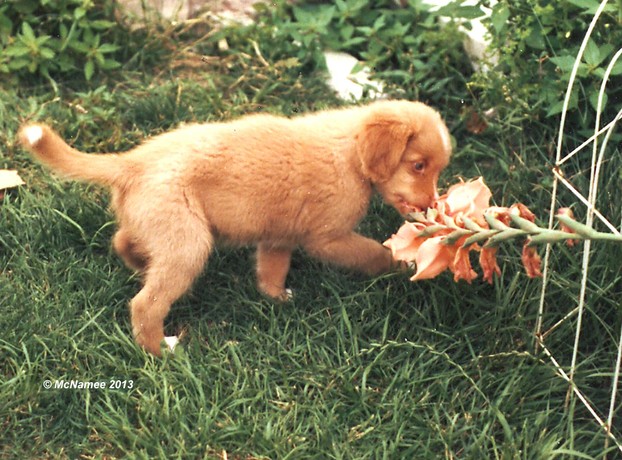
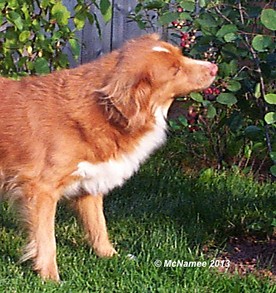



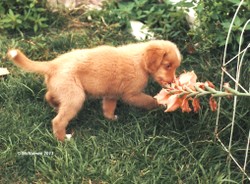

 Versatile Nova Scotia Duck Tolling Retrieverson 08/02/2014
Versatile Nova Scotia Duck Tolling Retrieverson 08/02/2014
 Should You Spay or Neuter Your Puppy?on 08/12/2014
Should You Spay or Neuter Your Puppy?on 08/12/2014
 Horse Racing History: the Preakness Stakeson 05/15/2014
Horse Racing History: the Preakness Stakeson 05/15/2014
 Dinosaurs Will Be On Display in Trenton, Ontario, Canadaon 07/29/2013
Dinosaurs Will Be On Display in Trenton, Ontario, Canadaon 07/29/2013

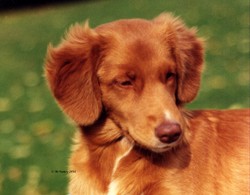
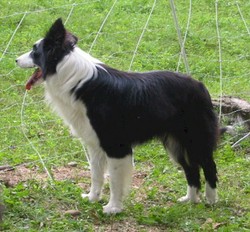
Comments